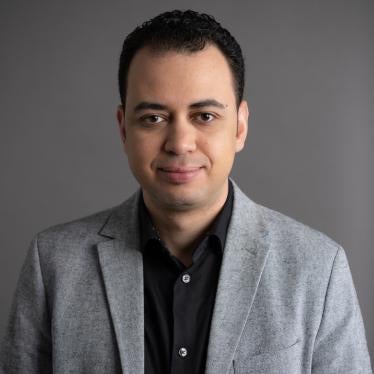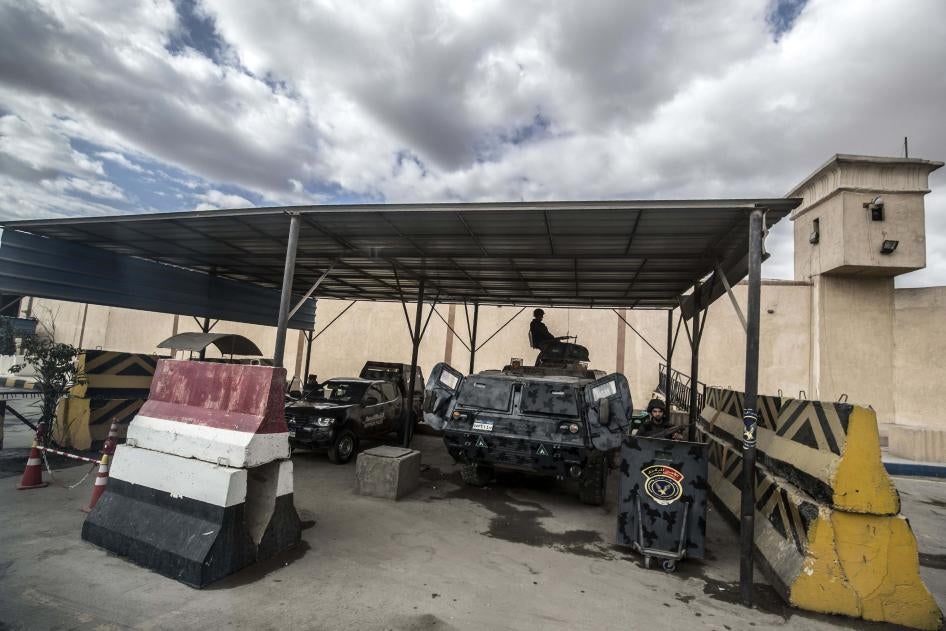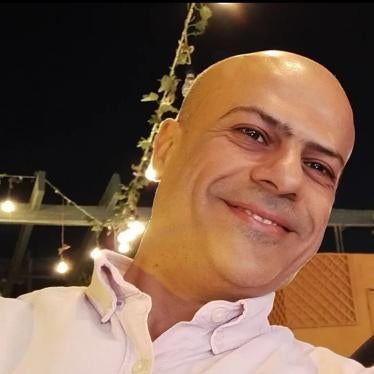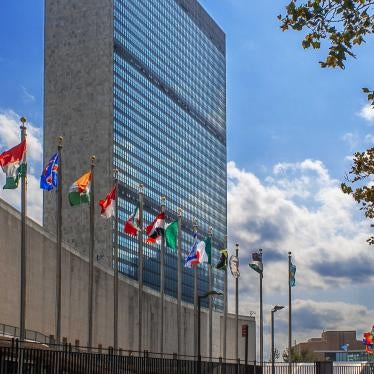Egypt’s government has reached a new low around torture.
After the Guardian reported on two leaked videos last January showing detainees in a Cairo police station with wounds that appeared to be the result of torture, Egyptian authorities failed to carry out a credible investigation into the abuse. Instead, Egypt’s Supreme State Security top prosecutor, Khaled Diaa, referred most of the detainees who appeared in the videos to a mass trial.
This is just the latest example of impunity in a country known for endemic torture with a judicial system that looks the other way.
On May 28 the first trial session was held before a terrorism court. The defendants include 18 men and a 17-year-old boy allegedly subject to torture by officers at the Al-Salam First police station where the videos were reportedly recorded in November 2021.
According to the court referral order, they face charges of “joining a terrorist group,” “financing that group,” and “spreading false news.” All the charges are based on allegations by National Security Agency officers that the videos were part of a Muslim Brotherhood conspiracy to undermine the police and public interests.
Also charged were three men and a woman whose “complicity” included providing the phone used to record videos of the abused men, who they knew, and then uploading the videos to YouTube.
On January 24, the same day the Guardian published the leaked videos, unnamed security officials told Egyptian media, without investigation, that the videos were fabricated.
On February 15, Egypt’s Office of the Prosecutor General issued a statement claiming that the allegations of torture accompanying the leaked recordings were false. It said that the police – the very group alleged as perpetrators in the video – investigated and concluded that the men injured themselves with a “metal coin” and had recorded the video to “destabilize” the country and “spread chaos.” Prosecutors ordered the men in the video and their acquaintances jailed pending trial, while the alleged perpetrators remained free.
The case shows that Egypt needs an independent mechanism, preferably with an international dimension, to address endemic torture in detention, and hold accountable those who perpetrate or cover up torture. The state response to the shocking videos speaks volumes regarding the absence of political will to address abuses by security forces in President Abdel Fattah al-Sisi’s government, which instead punishes victims and whistleblowers.










